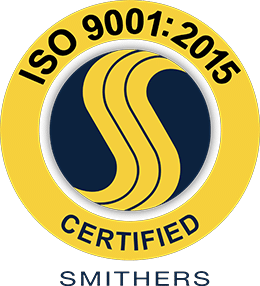Under subcontract to Infinity Technology Inc., Riverside Technology inc. continued its support to NOAA/NESDIS Independent Review Team (IRT) activities. Chaired by Mr. A. Thomas Young, former Director of the NASA Goddard Space Flight Center and President/COO of Martin Marietta, the IRT completed its third independent evaluation of the NESDIS mission since 2012, providing expert analysis of how NESDIS is addressing its challenges and opportunities. Riverside’s Director of Federal Programs, Mr. Brian Mischel, supported the IRT as Executive Secretary providing organizational and logistics support to the IRT’s activities while Ms. Meredith Wagner from our TPIO team provided Secretariat support.

The Appropriations Hearing Room
The IRT final report has been submitted to NESDIS and successfully briefed to NOAA and NASA senior leadership, the Department of Commerce, the Office of Management and Budget (OMB), and the House and Senate staffs of the appropriate appropriations and authorization committees. The report addressed a wide range of topics and produced the following summary findings:
Continued Progress – The IRT believes that the NESDIS path forward is positively established and that NESDIS is capable of embarking on that path.
A Vital National Mission – The IRT believes that NESDIS’ critical national mission to provide weather, severe storm and environmental intelligence is critically important to our lives and property, national security, economy, and quality of life. Acknowledgement of the importance and ensuring the implementation of the enabling capabilities consistent with the criticality of the mission, at all leadership levels, is mandatory.
Revitalizing Partnerships – NASA is an important part of the Nation’s weather and severe storm mission. The relationship between NOAA and NASA needs to be better defined and strengthened.
Weather Observation System Robustness and Gap Mitigation – The JPSS governance, robustness, and potential gap mitigation are continuing significant concerns. Future space and associated ground systems must be robust with “two failures to a gap” criterion and provide “equal or better” weather forecasting and severe storm monitoring performance. JPSS and GOES-R follow-on (beyond the current four each) decisions are imminent and require attention. Given the time available, additional GOES and JPSS satellite systems should be acquired, unless new technology and/or commercial solutions can be demonstrated to be robust and “equal or better” to the existing performance baseline.
Weather Observation is a System of Systems – Weather forecasting and severe storm monitoring are influenced by a multitude of interacting factors: satellite system performance; ground system; weather models; algorithms; etc. This suggests that an end-to-end system analysis is necessary to properly balance these contributors.
A copy of the IRT Final Report can be accessed here.




